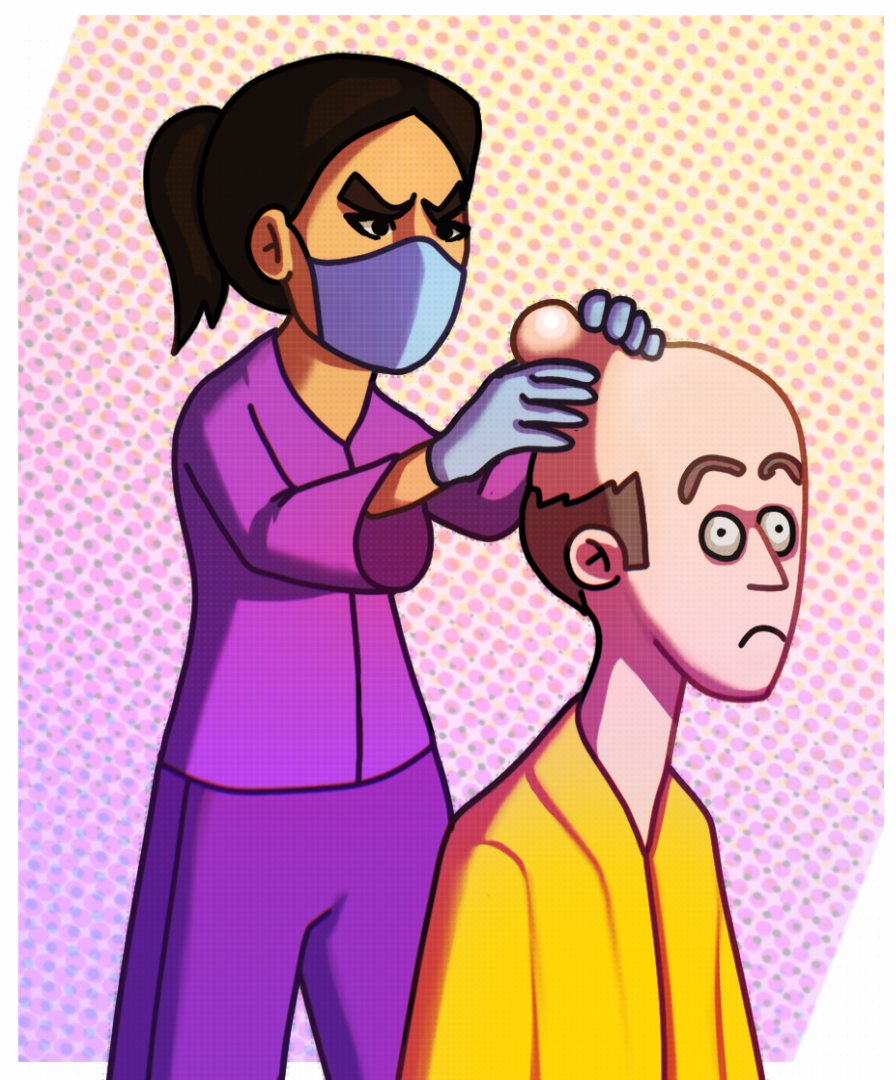Back in 2018, TLC aired “Dr. Pimple Popper,” a show in which American dermatologist, Dr. Sandra Lee assists patients with skin abnormalities and helps them reclaim their confidence.
Before TLC aired the show, Dr. Lee gained notoriety from her YouTube channel where she uploaded videos of cyst removals, blackhead lancing’s and other procedures to her engrossed followers, who refer to themselves as “popaholics.”
Now, with her television program, she undertakes much more dramatic procedures, such as the removal of massive lipomas, the tumors created by neurofibromatosis and unusually located cysts.
Participants on the show claim they have reached out to Dr. Lee out of desperation. Many have had their conditions worsened by previous doctors, or experienced recurrences of their condition despite having it removed or treated previously.
One of the most common reasons patients seek help from Dr. Lee is because the cost of the procedure is too expensive for them to afford, thus in exchange for free treatment, they invite television viewers into their lives.
While it is incredible that Dr. Lee is able to treat participants free of cost, this is symptomatic of a broken health care system that considers very essential surgeries “elective,” therefore unfairly forcing patients to pay exorbitant prices.
While the select few patients featured on “Dr. Pimple Popper” receive free treatment, the average American patient who seeks the same kind of procedure isn’t as lucky. Like cast members on the show, those who are unable to afford the price of essential surgeries can live with low self-esteem, depression, anxiety and loneliness due to their conditions.
Adam, one of the participants on the show, lived with 11 cysts on his head that were highly visible. After a painful, poorly performed surgery before visiting Dr. Lee, he decided to not continue with the process of removal, and instead constantly wore hats to hide the bumps.
However, there were some situations he could not avoid removing his hat for, such as when reciting the Pledge of Allegiance. When he did remove the hat, he recalled children and adults “taking attention away from the flag and going to [his] head.”
Adam’s anxiety surrounding his cysts led to him turning down invitations from friends to the point where his friends stopped asking him and his family to outings because they expected him to say no. This only increased Adam’s loneliness. His story is not unique among participants of the show or patients with skin conditions.
A 2018 study by the International Journal of Women’s Dermatology, stated 25-50% of surveyed patients living with skin conditions experienced high levels of psychological distress. Additionally, 29% of respondents said their condition was a barrier to finding a partnership, 20% cited their condition as a major factor in the breakdown of their most recent romantic relationship and 67% claimed their job opportunities were limited by their condition.
When the inability to afford health care treatment begins to impact one’s mental health, it is cruel to continue to prevent these patients from seeking the treatment they need to feel confident.
Additionally, the physical impact these conditions take on their patients is often understated. Many of Dr. Lee’s patients claim to have trouble sleeping, experience numbness and other side effects that previous doctors considered relatively harmless.
Other medical conditions have also not been taken seriously in the past despite their very real physical impact. Patients with macromastia, or overlarge breasts, saw an increasing number of insurance denials from 2012 to 2017. Some insurance companies say they will not cover the procedure unless 500 grams of breast tissue are removed on both sides, despite studies showing that the amount of tissue removed is unrelated to the relief of symptoms.
The procedure is often considered to be a cosmetic one, but many patients suffer from back and neck pain, in addition to mental health issues related to living with very large breasts. Reduction is considered to be the best way to relieve this pain, but many patients have no choice but to live with it because they cannot afford the procedure.
Some of these conditions can become so painful that it impacts one’s ability to obtain a job which affects their way of paying for the procedure. A 2020 report from the Bureau of Labor Statistics notes that 17.9% of people with a disability were employed that year, down from 19.3% the prior year. Unfortunately, this unemployment rate makes it difficult for people with disabilities to afford the care that they need under the current system.
While looser restrictions on what is considered an essential surgery may cause a burden on overworked health care professionals, patients seeking out health care from an overburdened system is not the fault of the patients, but of the greedy system that put the overburdened workers there in the first place.
It is no secret that the American health care system is very different from the systems of other countries. In 2014, the average cost of a knee replacement in America was $28,184, which was 40% more than the average price in Switzerland, 53% more than in the United Kingdom and 77% more than in Australia.
Additionally, the average cost of a nightly hospital stay is higher in the U.S. than in other countries such as Switzerland and Australia.
Because of how expensive health care in America can be, some Americans have traveled overseas where they can get procedures done at lower costs, even with airfare included. This practice has become so popular, the Centers for Disease Control and Prevention refer to it as “medical tourism.”
While traveling abroad is a temporary solution for some, it excludes those without the ability to travel abroad and is not a long-term answer to the problem of expensive surgeries.
The American health care system as it stands is not sustainable for Americans. Those running the system need to evaluate how it operates in order for patients to be treated with more compassion and equity.
– Tiara Allen is a marketing senior.
The University Star welcomes Letters to the Editor from its readers. All submissions are reviewed and considered by the Editor-in-Chief and Opinion Editor for publication. Not all letters are guaranteed for publication.
Opinion: “Dr. Pimple Popper” highlights flaws in American health care system
February 23, 2022
Donate to The University Star
Your donation will support the student journalists of Texas State University. Your contribution will allow us to purchase equipment and cover our annual website hosting costs.

























